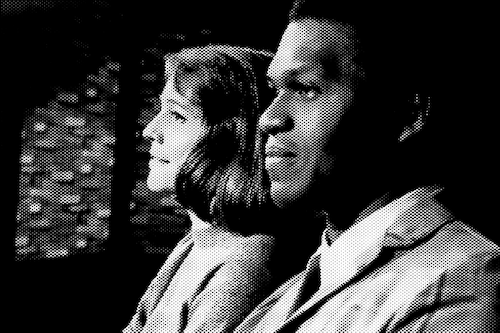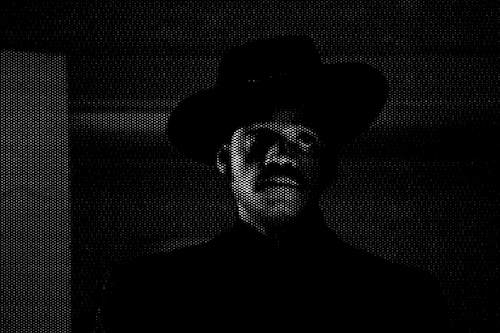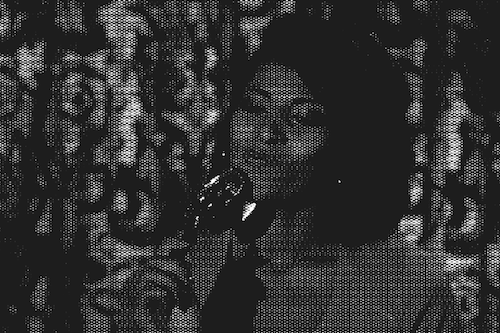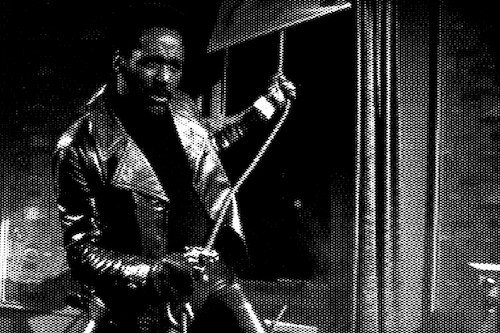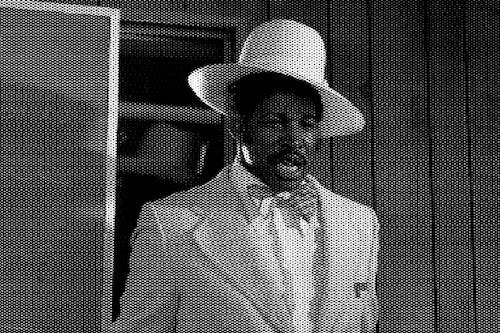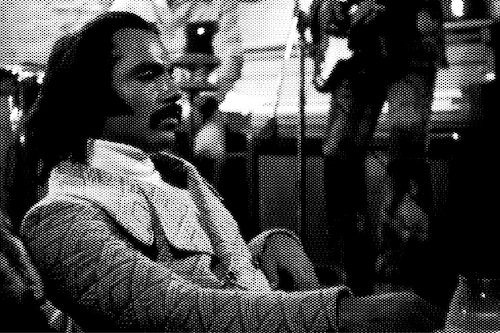This Week in Cinema, I Learned…Feb 04-10 2024
Written by Cameron Geiser
Welcome to This Week in Cinema, a yearlong film criticism project wherein I will be watching a new film that I haven't seen every single day.
This Week in Cinema I Learned… Feb 4th-10th 2024
This week the focus was on the Blaxploitation films of the 1970’s. Five of the seven films this week are Blaxploitation legends and classics in their own right, with the two exceptions being Melvin Van Peebles’ directorial debut with The Story of a Three-Day Pass and Denzel Washington’s first film in The Equalizer trilogy. One thing I did notice about this explosive genre of film is that these films feel structurally and tonally similar to the Hollywood Gangster films of the 1930s with the occasional Samurai and Western influences sprinkled in for good measure. They are their own films with their own narrative identities certainly, but each one follows a character on a mission usually involving a power struggle on a personal, or occasionally national, level. The films of Edward G. Robinson, James Cagney, and several including Humphrey Bogart pre-Casablanca, come to mind. They all feel structurally similar to these Blaxploitation films, though Sweet Sweetback’s Baadasssss Song is entirely its own category of experiential narrative in my opinion. These were all highly entertaining, even Dolemite is more watchable than the score might suggest, but my favorite film of this week was easily Pam Grier’s Friday Foster.
February 4th
The Story of a Three-Day Pass (1967)
4/5
The most surprising thing about this film is just how close The Story of a Three-Day Pass feels to the New Wave films coming out of Paris over the prior decade at that time. Shot in Paris on location, Melvin Van Peebles made his edgy first feature in France after moving there. He learned the language and wrote a few books, and eventually turned one of them into this film and shot it in six weeks. To make a film about international and interracial romance at that time, well, it was a film that could only be made in France. Peebles does a few interesting things throughout the film to make it stand above the psychology at the core of the story. There are a few shots in nightclubs and jazz bars where he uses camera movement in quick flourishes of stylistic grandeur that hint at his later attempts to shake things up. But there are also times when it almost feels like a French film, though there are key moments that pinpoint that this is coming from an American perspective. Certain audio cues, the beach party movie vibes in a couple of the nightclub scenes, and the main character's trauma connected to race all coincide to reveal the introduction of a new major player in filmmaking- an American in Paris, if you will. Some of the key traits and themes that would become staples of his later work, such as the repetition of dialogue, exposing racial bias in others, and creative risk-taking are all here and accounted for. Especially the deep cynicism of fantasy versus reality.
February 5th
Sweet Sweetback’s Baadasssss Song (1971)
2.5/5
Watching this film with no real context, and a group of friends, was one of the most surreal movie-watching experiences I've had in a while. The opening scene was almost a deal-breaker for all of us if I'm being honest. An extremely long and brutally awkward sex scene between a prostitute and a child version of Sweetback (the main character played by Melvin Van Peebles) over the opening credits was certainly abrasive, at least it ended with Sweetback transforming into a man which I understood as the prostitute "making him a man", through sex. Anyways, Sweetback is working at a sex club where he again transforms, but from a woman into his male form during the show- during which some cops arrive and plead with the club's owner, Beetle (Simon Chuckster), to take someone in so they "can look good for the boss". They planned on releasing Sweetback a few days later due to a lack of evidence, but things don't exactly go as planned.
On the way to the police station, the cops stop a scuffle and pick up a Black Panther who the cops beat mercilessly after he insults them. As he is still handcuffed to Sweetback, the Cops *surprisingly politely* remove his handcuffs and apologize to Sweetback before going back to beating up the Black Panther. Sweetback can't take the sight of the violence after a while and he boils over, proceeding to beat the cops to death with his handcuffs. The remainder of the film is Sweetback's journey to Mexico after he becomes the focus of a large manhunt. This is a very strange one folks. It seems to me that the film might be more of an attempt to create a conversation than a narrative?
There are a plethora of sex scenes that seemingly appear out of nowhere during the film, my best guess is that this is a critique of society's sexual obsession with black people? Sweetback is used for sex, coveted sexually, or he uses sex to get out of problems constantly in the film. There are a variety of wild choices with regard to editing and transitions, with picture-in-picture, animated images overlaid on top of footage of Sweetback evading the cops, and the score is just as strange and avant-garde funk as everything else in the film. There is also an extreme amount of dialogue repetition which was beginning to become a bit nauseating as the runtime dragged on. And slow it is! I am okay with a good slow burn, but when you can barely tell what's happening the immersion cracks deep into the film's very foundation, threatening to make the whole thing crumble.
We were constantly asking each other, "What is happening?!" as the film went out of its way to remain mysterious in the moment. Sweetback himself is an incredibly solemn and blank-faced character for the whole of the movie. With nearly the whole film made by Peebles himself, it makes sense that this film would feel like one man stitched it together because that's essentially how it got made at all. I don't regret watching this one, but it will likely be some time before I indulge in a rewatch of Sweet Sweetback’s Baadasssss Song.
February 6th
Friday Foster (1975)
4/5
Now this is a film I can get behind and highly recommend immediately. Pam Grier stars as Friday Foster, a photographer at Glance Magazine who gets caught up in a nationwide scheme to kill off powerful members of the Black Community. It's 90 minutes of pure blockbuster fun. Friday is sent to photograph the Black Millionaire Blake Tarr (Thalmus Rasulala) as he exits his personal jet, but it's immediately a scene of pure chaos as several hitmen disguised as airport security attempt to assassinate the power player. Afterwards, Friday is determined to stay hot on the trail of this mystery no matter what her editor says! Friday Foster takes a lot of inspiration from the best Detective films and Action scenes you can find, and it fills the cast to make this flick a knockout of charisma and charm. Seriously, I never expected to see Yaphet Kotto, Eartha Kitt, Scatman Crothers, or Godfrey Cambridge (Watermelon Man), we even get Carl Weathers playing a James Bond-style heavy villain! Everyone is phenomenal, Friday Foster is pure entertainment, check it out!
February 7th
The Equalizer (2014)
4/5
Since I never got around to this trilogy of films starring Denzel Washington I figured this is the perfect place to see what this series was all about. Whew, after watching it I have to let the adrenaline die down a bit because The Equalizer is excellent modern-day genre cinema. It's a familiar tale but one told with such precision and in such a calculated manner that it transcends any genre story structures you may have glimpsed. As if the film were Leon The Professional by way of David Fincher, The Equalizer wisely focuses less on the older man protecting younger woman trope and more on the cat-and-mouse escalation of violence between Robert McCall (Denzel Washington) and elements of the Russian Mafia. It's a classic case of a retired expert returning to the battlefield after someone he cares about has been viciously attacked only to attract more fuel to the fires of violence. A vigilante revenge flick isn't all that special, but with Denzel Washington in front of the camera, and Antoine Fuqua behind it, the average becomes the sublime.
February 8th
Shaft (1971)
3.5/5
With a higher production budget and a near-perfect score from Issac Hayes, Shaft felt like the Blockbuster heights of the Blaxploitation movement. More than any other film this week, Shaft feels spiritually connected to the Noir Detective realm of films. John Shaft (Richard Roundtree) is essentially Sam Spade, Philip Marlowe, and Jake Gittes just in a different time, another world. More in tune with the vibe of New York City in the early 1970s than the plot, Shaft moves along at an amicable pace while indulging in decades-old private-eye tropes with sass and charm aplenty. Shaft is hired by Bumpy (Moses Gunn), a local crime lord whose daughter has been kidnapped by the Italian Mafia. As with most private-eye flicks, the details get muddled and unexpected outcomes seem to be around every corner. Nearly every character involved has a larger-than-life presence though Shaft himself has the most memorable quips and punchy retorts. While none of the action sequences ever feel exemplary or harrowing, the film trots along just fine and at the end of the day this one has more of a relaxed atmosphere as its mystery unfolds. Though before moving on, I have to say, I didn't expect Shaft to have the classiest sex scenes of the bunch, but it did.
February 9th
Dolemite (1975)
2.5/5
Within the realm of B-movies, Dolemite stands tall. Rudy Ray Moore, who some call the Godfather of Rap and Hip-hop, became a bit of a legend himself after rising in popularity due to his vinyl comedy albums before moving to filmmaking. In fact, if you really want to know Rudy Ray Moore’s story I highly recommend watching the Eddie Murphy Netflix adaptation from a few years back, Dolemite is My Name. As for the real McCoy, Dolemite is alright, though the best part of the film is its handmade look and that fiery independent spirit of making a movie by hook or by crook. The plot is incidental to the movie itself as it’s just a vehicle for Rudy to flaunt his colorful outfits and outlandishly entertaining lyrical improv. Truthfully his later film Petey Wheatstraw is a crazier film if you’re looking for a Rudy Ray Moore B-movie to show on a summer night with friends, though I do suggest imbibing a glass or two for best results.
February 10th
Super Fly (1972)
Going into Super Fly, I wasn't entirely sure what variant of Blaxploitation I was going to get. While the score, production, pacing, and acting are all serviceable, it is in service of what is in my opinion, a tired and boring storyline trope. Insert The Godfather III meme of Pacino lamenting the crime world and never truly being able to get out right here because that is the plot. Or at least, it’s the notion that our protagonist Priest (Ron O’Neal) believes in. That after "one last score" he can leave behind this world that he’s become disillusioned with and live happily ever after. Priest and his partner in crime Eddie (Carl Lee) plan to go through Priest’s mentor and father figure Scatter (the phenomenal character actor Julius Harris) to acquire the massive amount of cocaine they want to sell quickly over a few months in order to make a cool Million. Unfortunately for Priest and Eddie, the Cops knock off Scatter when they come to see Priest and Eddie as their new pushers of Cocaine. It’s an okay crime film, but I was hoping for something more.
Cameron Geiser is an avid consumer of films and books about filmmakers. He'll watch any film at least once, and can usually be spotted at the annual Traverse City Film Festival in Northern Michigan. He also writes about film over at www.spacecortezwrites.com.


